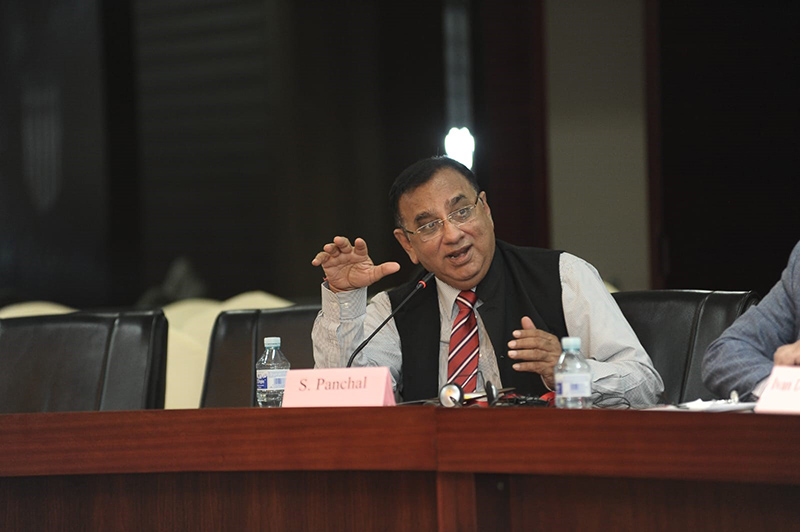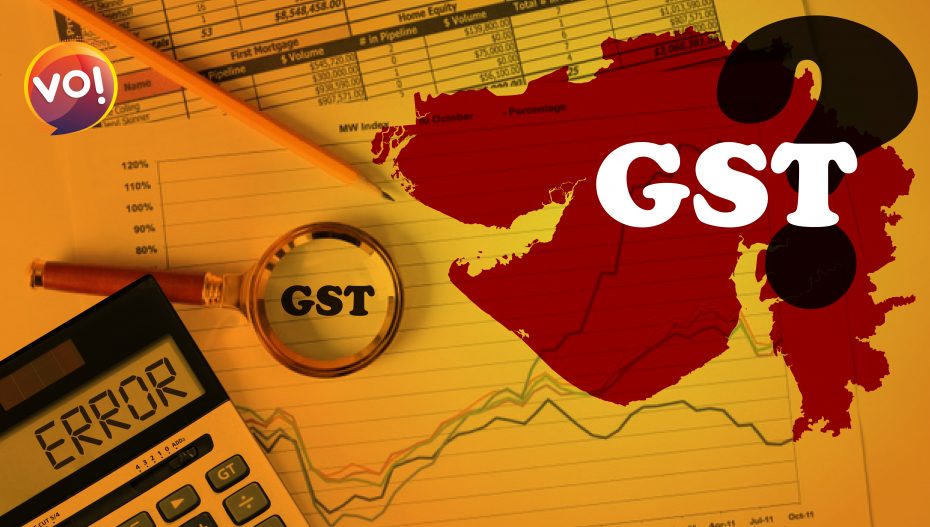The Goods and Services Act (GST) regime was introduced on the midnight of June 30, 2017, as suddenly as demonetisation was announced in November the previous year, but exactly five years down the line its complicated structure continues to flummox businessmen across the spectrum.
It isn’t without reason that Supreme Court judge JB Pardiwala had observed as a Gujarat High Court judge that, “It is easier to reach the moon than to understand GST.”
Vibes of India spoke to a cross-section of tax experts and businessmen in Gujarat to find that most in the GST department are technologically challenged while the GST portal is notorious for its frequent glitches, leaving loopholes for evaders to exploit.

Tax expert Monish Bhalla, who has penned several books on the GST regime, says the investigation wing is one of the most crucial departments in the State GST but even after five years there still seems to be a loophole in their investigation process.
Elaborating on his point, Bhalla says, “One aspect of the investigation in the GST department is through Artificial Intelligence (AI). The system identifies the tax evaders or ambiguous applications and thereafter, the officials conduct investigations on the chosen ones. There is no human intervention once the files/cases are selected,”
“Since the IT backup with the GST department is weak and the GST portal is poor, it all eventually reflects in the ineffective investigation by their AI. Ultimately, wrong people get notices and it costs the department time, energy and money,” he adds.
According to the system now, the GST department gets a pool of data of IT returns from the Income Tax department. The GST department through their AI sends notices to defaulters. Bhalla points out that this leads to GST notices to over thousands of innocent people, including many lawyers from Gujarat. In March 2022, Gujarat High Court also ordered that no coercive action must be undertaken against the lawyers to notices provided to them through the CGST Department for recoveries of service tax/ GST.
When the GST department issues wrong notices, the ones who suffer the most are small businesses as they cannot appoint an expert to deal with the legal mess, that the big businesses can. “Therefore, the GST department needs to deal better with small businesses and not let them become victims of the GST dept’s shortcomings,” adds Bhalla.
The Gujarat High Court has time and again pulled up the State GST department for glitches in the process. On April 12, 2022, the court directed the department to issue showcause notices to defaulting taxpayers only in physical form and also emphasised the department to provide proper digital services.
Currently, IAS officer Milind Torawane has been given additional charge as chief commissioner of State Tax, Ahmedabad and Samir Vakil IRS (1998), is the Special Commissioner of State Tax, Ahmedabad. Already, Gujarat Finance Minister Kanu Desai is in Delhi attending the 47th GST council meeting, where he is expected to take up these issues.
1. Technical glitches in the portal

SGST department and commoners both lose out on revenue due to glitches in the portal. Ahmedabad-based Company Secretary Milind Kansara said, “Various dealers whose GST registrations were cancelled after issuance of show-cause notices had approached the High Court. The dealers complained that they had failed to file returns because of their ignorance of the law and technical know-how. However, they were never given the opportunity to explain their side.”
To this, the department submitted that it is finding it difficult to upload show-cause notices and orders of registration cancellation “on account of technical glitches in the portal”.
2. Pending recoveries
The GST department is the wing of the Central government to generate revenues but apparently, Gujarat GST had a whopping Rs 60,ooo crore of recoveries pending till February 2022. Non-recoverable dues and pending recoveries from GST raids are a loss to the government’s targeted revenue.
3.Vague notices
Another aspect for which the GST department is being criticised is their vague notices that ultimately put the businessman in a fix and may result in business loss.
On April 15, 2022, a division bench of the Gujarat High Court led by Justice JB Pardiwala criticized the GST officers for issuing a vague notice even after a former order of the court revoked the first notice. The judgment said, “A vague show-cause notice dated 29.03.2022 has created all problems arriving on the writ applicant to show cause as to why his GST enrollment must not get revoked. But the other notice has indeed appeared vague.”
4. Officials lack clarity
A chartered accountant, who closely deals with the SGST dept, requesting anonymity, said, “As the GST regime is fairly new, often even the officials are confused or have little clarity when they issue GST notices. Our issues aren’t resolved unless we reach the Assistant Commissioner. As I deal with the SGST department regularly, I know the drill but a new businessman will have a tough time getting a solution in the GST department.”
5. Mistakes and misuse of e-billing

The indirect tax system was brought into practice to simplify taxes at the Centre, State and local levels but it seems to create more confusion. The Institute of Indian Foundrymen’s Ahmedabad head, Subodh Panchal, said, “E-invoicing under GST is cumbersome and tough for most businessmen. Chances of mistakes have increased due to this latest feature and cases of misuse of GST billing have also gone up due to this feature. As a businessman, I feel there is no guide on how to go about the GST features, we have to hire a professional to deal with GST.”
6. Additional liability of GST payment
Committee member of Gujarat Contractors Association, Tarak Shelat, said there are over 2,000 government contractors in Gujarat. “Most of us deal with unskilled labourers and uneducated vendors. We have the additional liability of their payment of GST. As businessmen, we comply with GST payment but if our vendors don’t pay it, the regime makes us liable for the same. We either lose out on revenue or our vendors due to this rule.”
7. Constant Clash between Central GST and State GST department officials
Another issue specific to Gujarat is the constant clash between Central GST and State GST department officials over issuing notices. According to the buzz in the departments, they often work at cross-purposes — as a result, the small businessmen and traders suffer.
Also Read: RoC Warns 1,552 Gujarat Firms For Noncompliance Of Law. Here’s why?













